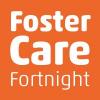There’s so much more to university
Almost half of England’s young people currently go on to university. Yet for young people in care, higher education is the road less travelled – just 6% of care leavers are estimated to attend university at age 19 compared to 49% of their peers.
A lot has changed since Professor Sonia Jackson first identified this issue through the By Degrees action research project in 2003, and there has been a growing awareness in the sector that the playing field just isn’t level enough. University may not be everyone’s first choice, but care leavers deserve the right to make that choice themselves. They should have equal access to higher education, and the support they need to succeed during their time there, both pastoral and educational.
I have managed our London Fostering Achievement programme at The Fostering Network since 2014, and, like our Fostering Achievement programme in Northern Ireland, we focus on improving educational outcomes. Last September, in partnership with the University of East London and hosted at their fantastic Docklands Campus, we ran a masterclass for foster carers and young people on post-16 options. Our care-experienced Young Ambassadors shaped the event, which included a careers panel, workshops on body language, self-esteem and uni finances.
Some of the young people who attended were as young as twelve, and this was their first visit to a university. For many of them, the experience of being in a lecture theatre, touring the campus and meeting Ambassadors with care experience was exciting, aspirational and inspiring. Many care leavers I have worked with go back to university in their later twenties and thirties. Regardless of whether these young people choose to go to university or not in the years that come, the fact that their foster carer has provided them with the chance to access university sends out a clear and powerful message about what is possible for their future.
Tick the box
It is important for foster carers and fostered young people to know that care experienced young people are eligible for extra support at university. Our Tick the Box awareness campaign aims to encourage young people who have spent time in care to ‘Tick the Box’ on their UCAS form saying they are care experienced, and get the extra support they are entitled to and may need while at university. The support on offer will vary from university to university, and can range from additional financial support in the form of a bursary to practical support to help care leavers settle into university, find accommodation or manage finances.
Unfortunately, not as many care experienced young people are ticking the box as could be, which means many of them are missing out on the extra support they could access - and we want to change that. Our aim through the Tick the Box campaign is to get the message that it is important to tick the box and access support to as many care experienced young people and foster carers as possible. Ticking the box is only used to enable universities to offer extra support to care leavers – it does not affect offers of university places.
Read our Tick the Box information leaflet for more detail on support during higher and further education.
The Fostering Network’s Tick the Box campaign was developed in conjunction with the University of Ulster and the Health and Social Care Board in Northern Ireland. Read their new publication Pathways to Further and Higher Education for Looked After and Care Experienced Young People.
The Fostering Network Wales has also produced A Foster Carer’s Guide to Inspiring and Supporting Care Leavers to Higher Education, which provides practical information and guidance including choosing the right course and the UCAS application process, as well as financial, emotional and general support. It also outlines the care leaver support available from each university in Wales. You can download the guide for free. This guide is also available in Welsh.
Useful resources
The University of East London is not alone in the excellent work that it does to encourage and support young people in care, and there are a huge number of opportunities for foster carers and young people across the UK. The National Network for the Education of Care Leavers (NNECL) is a network of universities and wider organisations which are passionate about supporting care leavers before, during and after their time at university. Their website has an interactive map of events, open days and shadowing opportunities throughout the year, making it easier for foster carers to explore what universities can offer for the child in their care. Visit www.nnecl.org for more information and to see what’s on offer in your area.
Another brilliant resource for foster carers and young people is the Propel website run by the Who Cares? Trust. It allows you to search by the course you want to do or the location you’d like to study at, and to see what support is available for care leavers at that university – whether it is financial, pastoral or educational. The Propel website is a great tool for deciding between different options to help foster carers and young people to find the right information to make the right decision about future studies. You can visit Propel at www.propel.org.uk
Tags:






